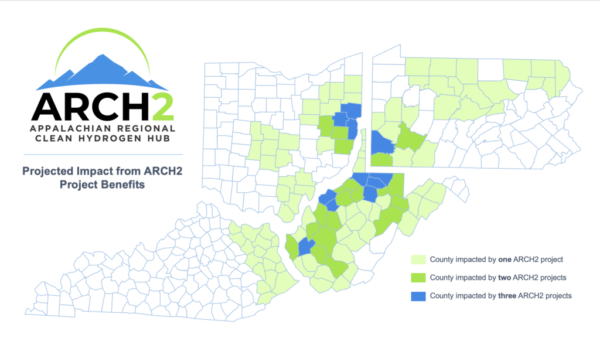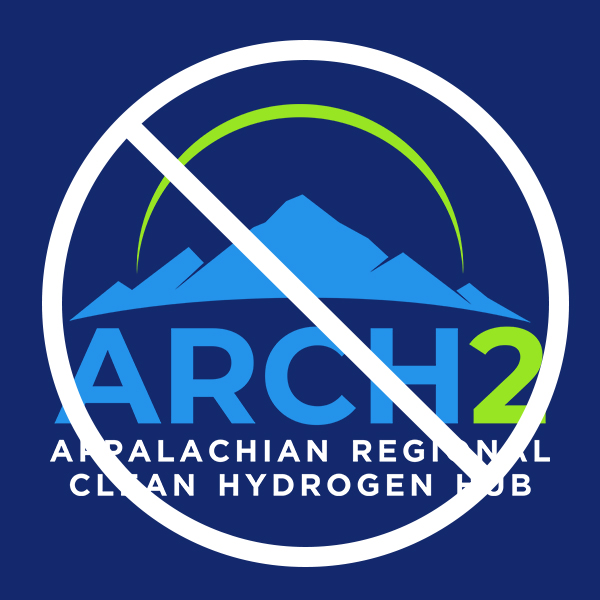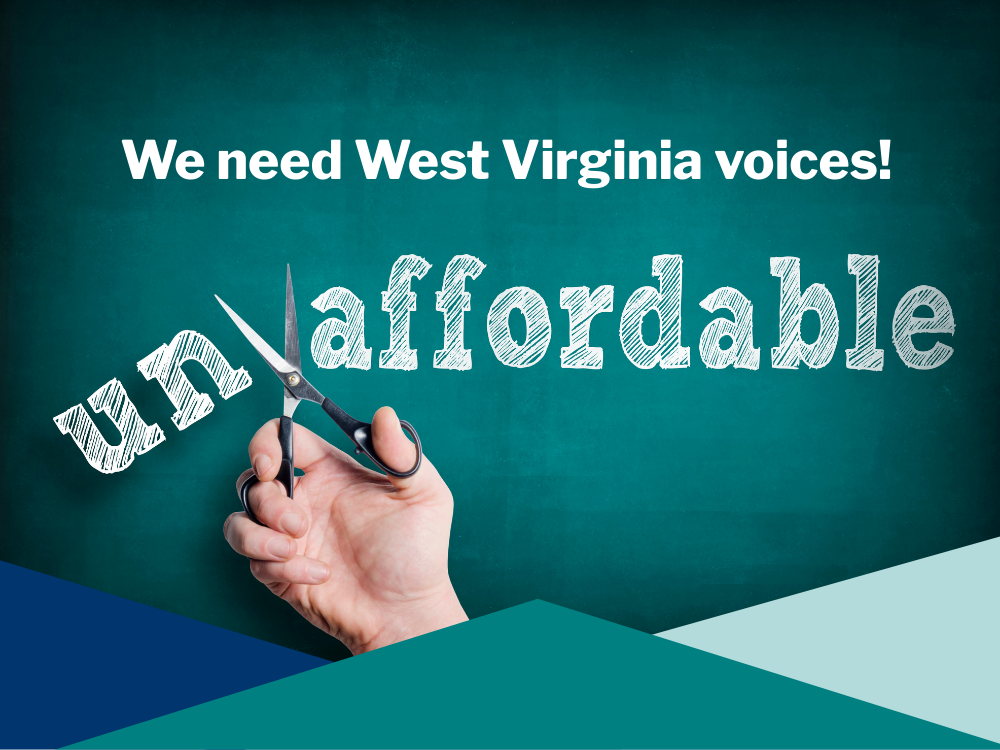- Like
- Digg
- Del
- Tumblr
- VKontakte
- Buffer
- Love This
- Odnoklassniki
- Meneame
- Blogger
- Amazon
- Yahoo Mail
- Gmail
- AOL
- Newsvine
- HackerNews
- Evernote
- MySpace
- Mail.ru
- Viadeo
- Line
- Comments
- Yummly
- SMS
- Viber
- Telegram
- Subscribe
- Skype
- Facebook Messenger
- Kakao
- LiveJournal
- Yammer
- Edgar
- Fintel
- Mix
- Instapaper
- Copy Link
Communities in Appalachia and the Ohio River Valley continue to bear the brunt of the economic and ecological effects of extractive industries in the wake of last week’s approval of up to $925 million in funds from the Bipartisan Infrastructure Law for the Appalachian Regional clean hydrogen Hub (ARCH2).
The ARCH2 project, spanning Kentucky, Ohio, Pennsylvania and West Virginia, will create hydrogen pipelines, multiple hydrogen fueling stations, and CO2 storage facilities for the purpose of extracting hydrogen for energy generation and emission reduction by means of carbon capture and storage (CCS).
Hydrogen processes are given color names to differentiate the processes used, and the ARCH2 project will be using blue hydrogen, which separates hydrogen from methane (commonly referred to as natural gas) through a steam process and produces carbon dioxide (CO2) as a byproduct, necessitating the CO2 pipelines and storage. Technology for green hydrogen, or hydrogen made by using renewable energy sources to power electrolyzers that split water into hydrogen and oxygen, exist but are not common yet. However, putting billions of dollars into a blue hydrogen false solution will only deepen the region’s dependence on fossil fuels, prolong the health and environmental impacts of the existing natural gas industry, and expose communities to the impacts of a large buildout of carbon capture and storage infrastructure. A hydrogen hub would also burden ratepayers and taxpayers since these projects are fundamentally uneconomic and require significant public subsidy.
The CO2 component of the hub is just as, if not more concerning than the fossil fuel-to-supposedly-clean-energy process that’s being billed as the solution to climate change. In a state already pushing back against dangerous pipelines and various economic and ecological boondoggles, the network of CO2 pipelines will be the next big fight for our state.




